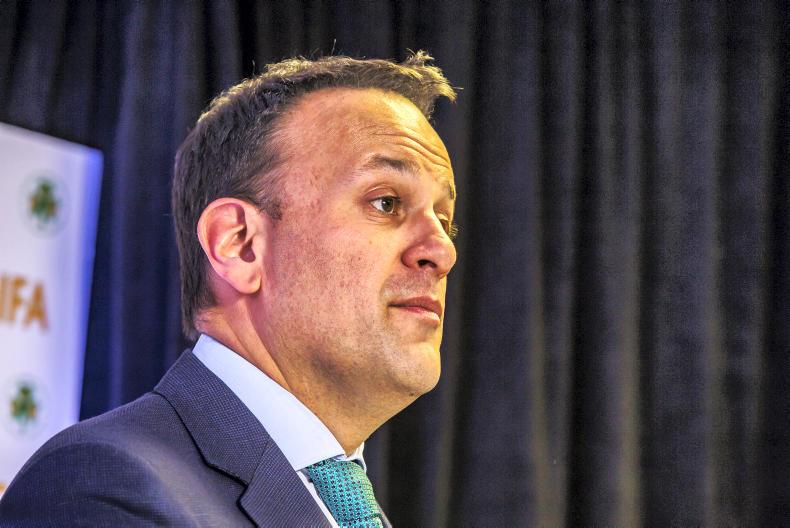An Taoiseach Leo Varadkar has called on every person in Ireland to play their part in reducing the spread of the coronavirus.
In his address to the nation on Tuesday night, he urged: “We all need to take steps to reduce close human contact. That is how the virus is spread. Not just at public gatherings or public places but also in our own homes, places of leisure and work.”
He acknowledged that cancelling public gatherings, closing pubs and curtailing social gatherings like parties, weddings and other celebrations was not easy – but it is necessary.
“More will be required in the coming weeks to reduce the spread of the virus,” he warned. "At all times we will be guided by and and take the expert advice from our public health emergency team led by the chief medical officer.”
Taoiseach Leo Varadkar says everyone must show solidarity at this time of national sacrifice, saying the damage to the economy caused by #Covid19 will be enormous.https://t.co/19InmEl6U8
— RTÉ (@rte) March 17, 2020
“We are in the midst of a global and national emergency – a pandemic – the likes of which none of us has seen before,” the Taoiseach said.
“So far the number of cases in Ireland has been relatively small. However, we believe that number will rise to 15,000 cases or more by the end of the month and rise further in the weeks thereafter.
“The vast majority of us who contract Covid-19 will experience a mild illness … but some will be hospitalised and sadly some people will die. We cannot stop this virus but working together we can slow it in its tracks and push it back.”
He said everyone needs to take sustained action to flatten the curve.
“Nothing less will do,” he said. “We know the best strategies focus on testing, contact tracing and social distancing. So, that is our strategy.
“We will keep our essential services … supply chains and utilities operating,” he told the public. However he said that the government does not know when this will be over.
Emergency
“This Emergency is likely to go on well beyond March 29th. It could go on for months into the summer so we need to be sensible in the approach we take,” he said.
“We will deploy our full resources to ensure that essential shops, workplaces and public transport can continue to operate. People will still need to buy goods and avail of personal services in the weeks and months ahead," the Taoiseach acknowledged.
“We are asking people to come together as a nation by staying apart from each other,” he continued. “The most basic messages of washing your hands properly and practising good hygiene around sneezing and coughing are still the most important.”
People with symptoms should stay at home and phone the doctor to arrange a test.
Cocooning
At a certain time, he said, elderly and people who have a long-term illness will be advised to stay at home for several weeks.
“We are putting in place the systems to ensure that if you are one of them, you will have food, supplies and are checked on. We call this cocooning and it will save many lives.”
He urged everyone to phone their neighbours and offer help, make sure those who are living alone are not left alone. He paid tribute to healthcare workers, saying: “Not all superheroes wear capes … some wear scrubs and gowns.”
He acknowledged army cadets, librarians, civil servants, childcare workers, teachers, lecturers, retail staff, hauliers, journalists and broadcasters for their roles.
“This is the calm before the storm – before the surge,” the Taoiseach said. “And when it comes – and it will come – never will so many ask so much of so few. We will do all that we can to support them.”
He urged everyone to halt the spread of fear by relying only on
information from trusted sources – the government, HSE, the World Health Organisation and the national media.
“Do not forward or share messages that are from other, unreliable sources,” he warned. “Fear is a virus in itself.”







 This is a subscriber-only article
This is a subscriber-only article










SHARING OPTIONS: